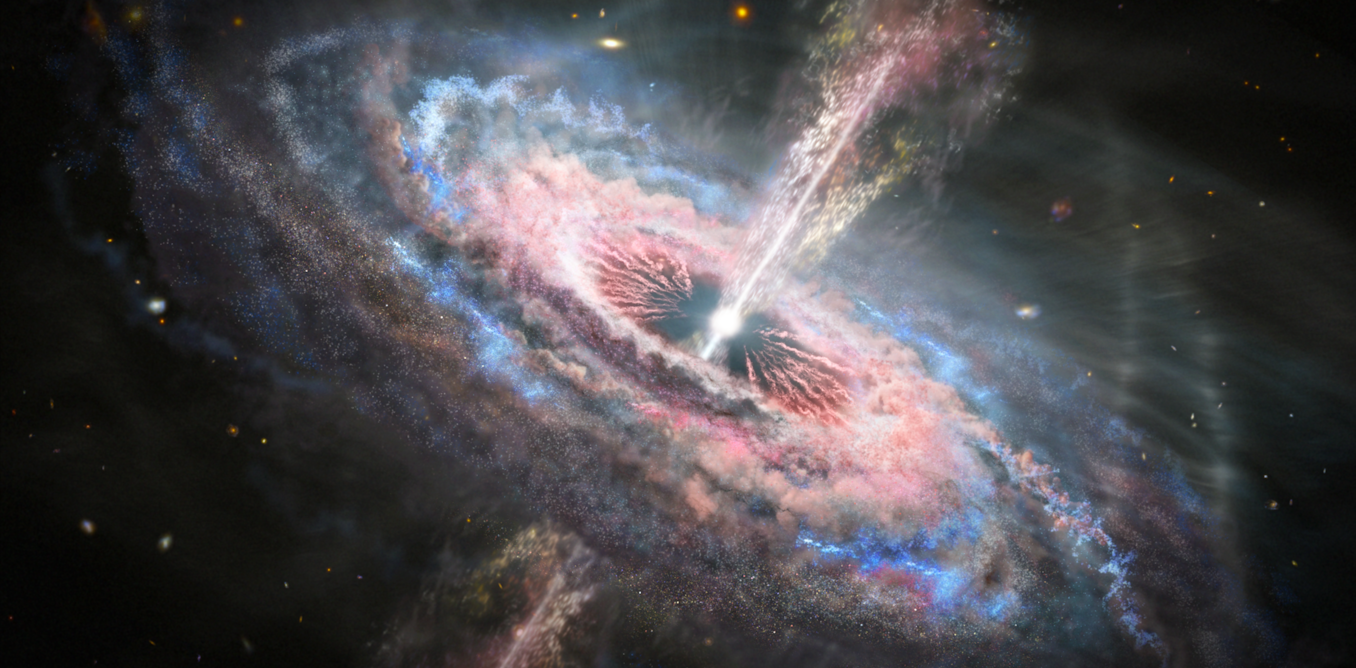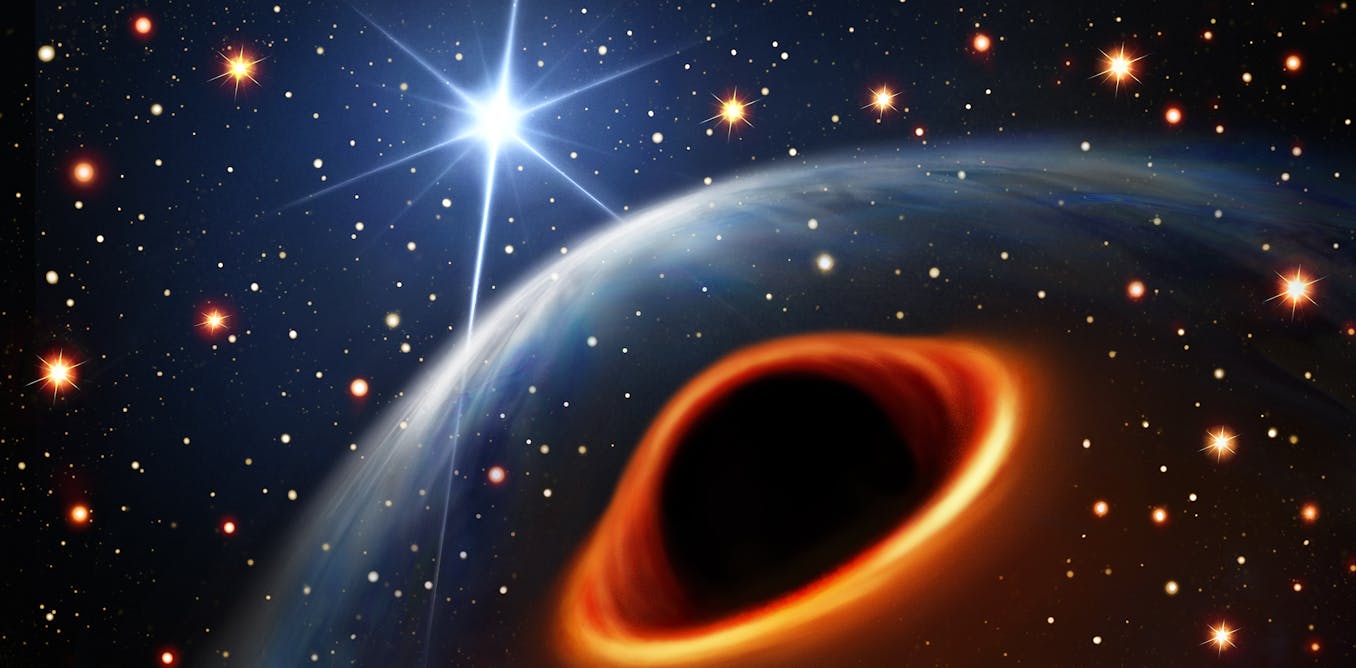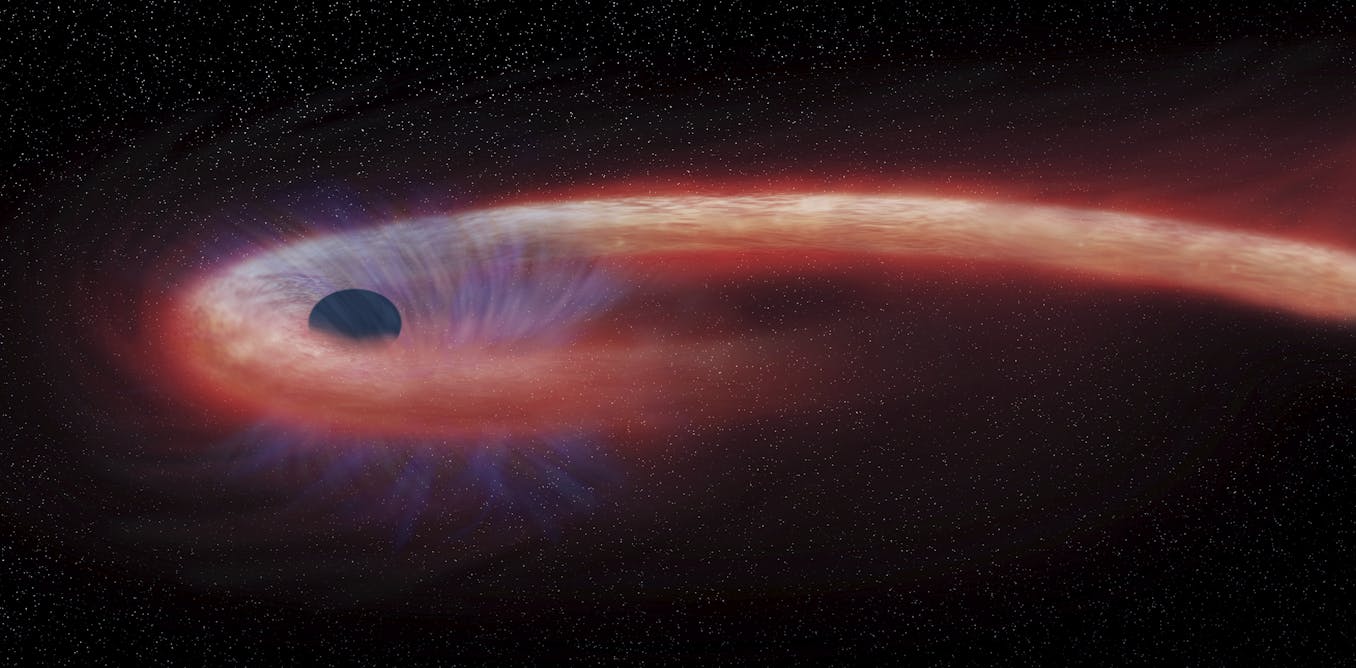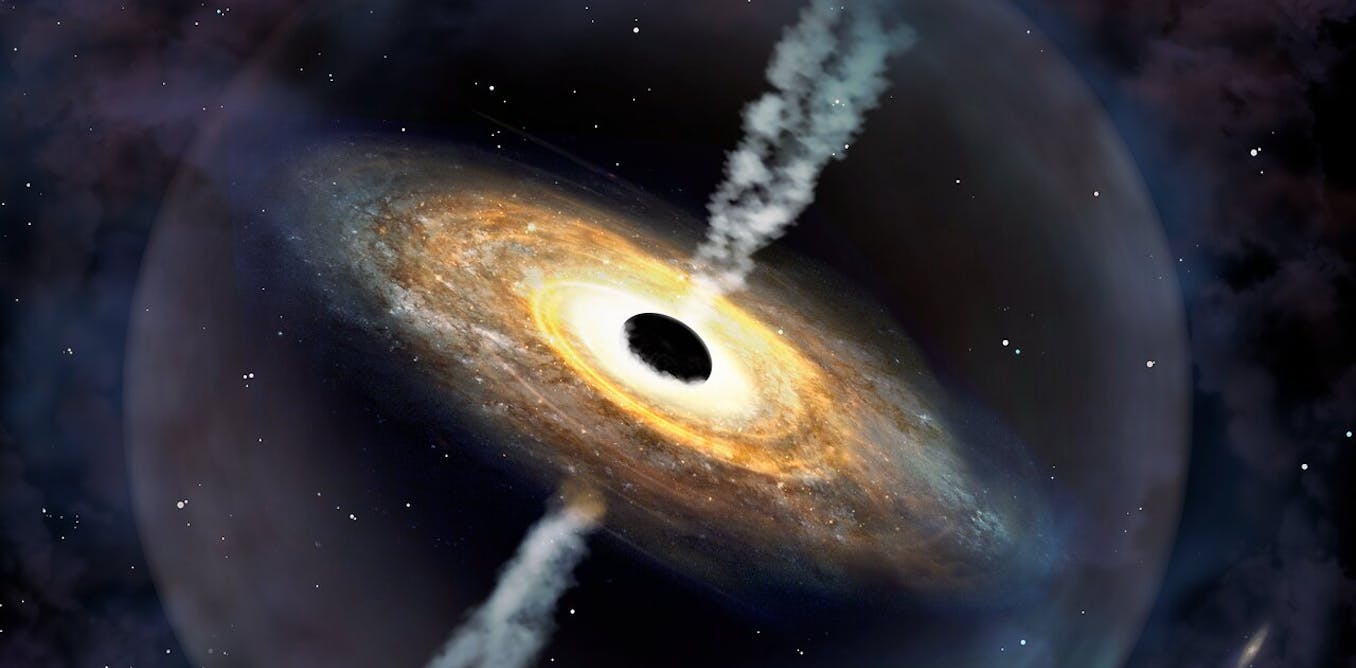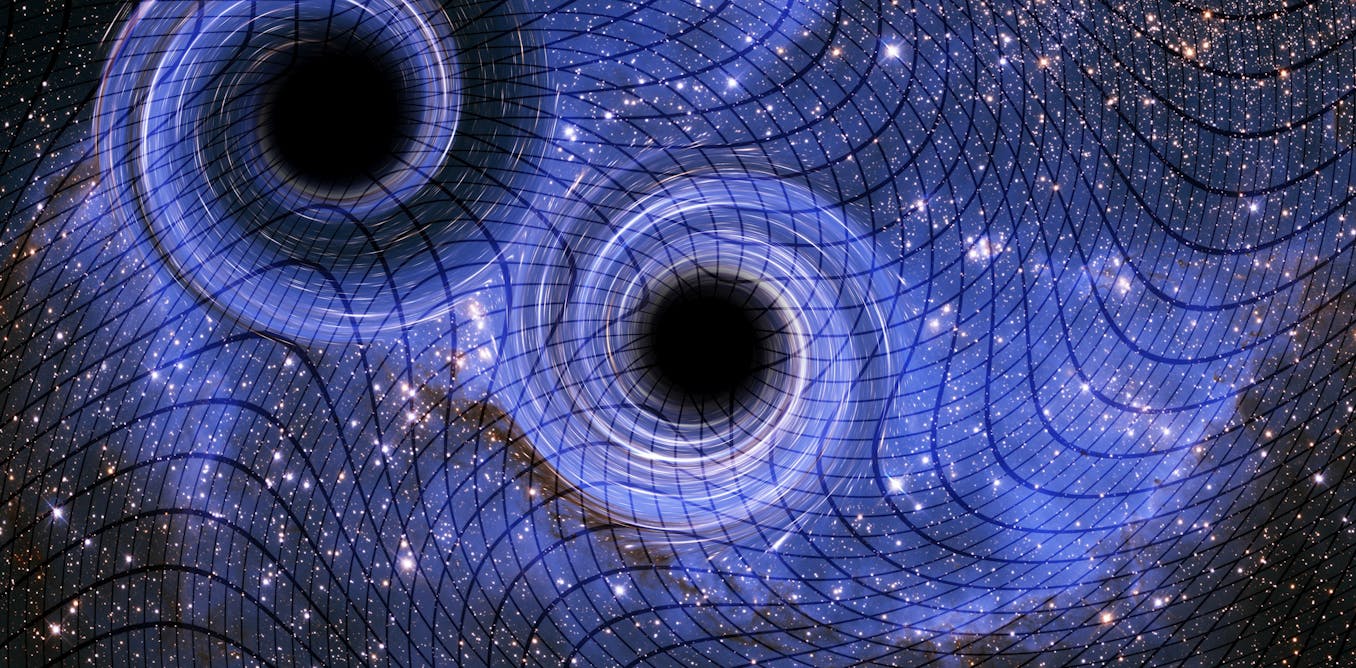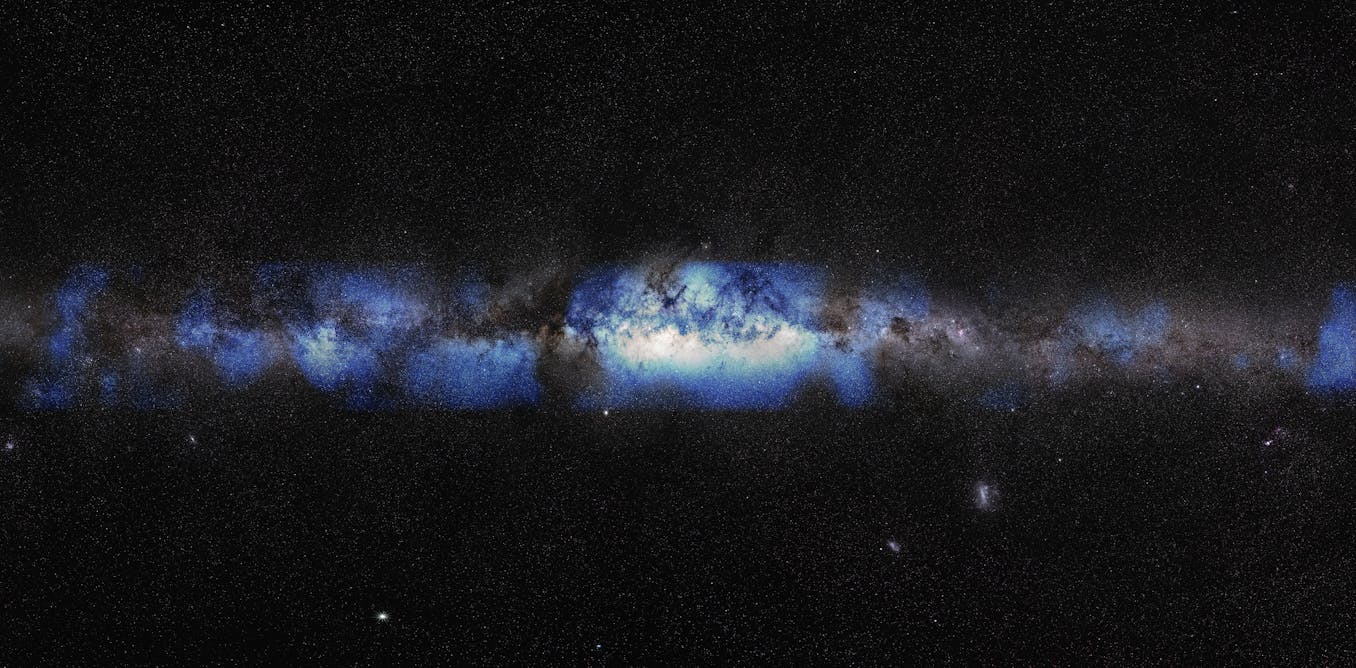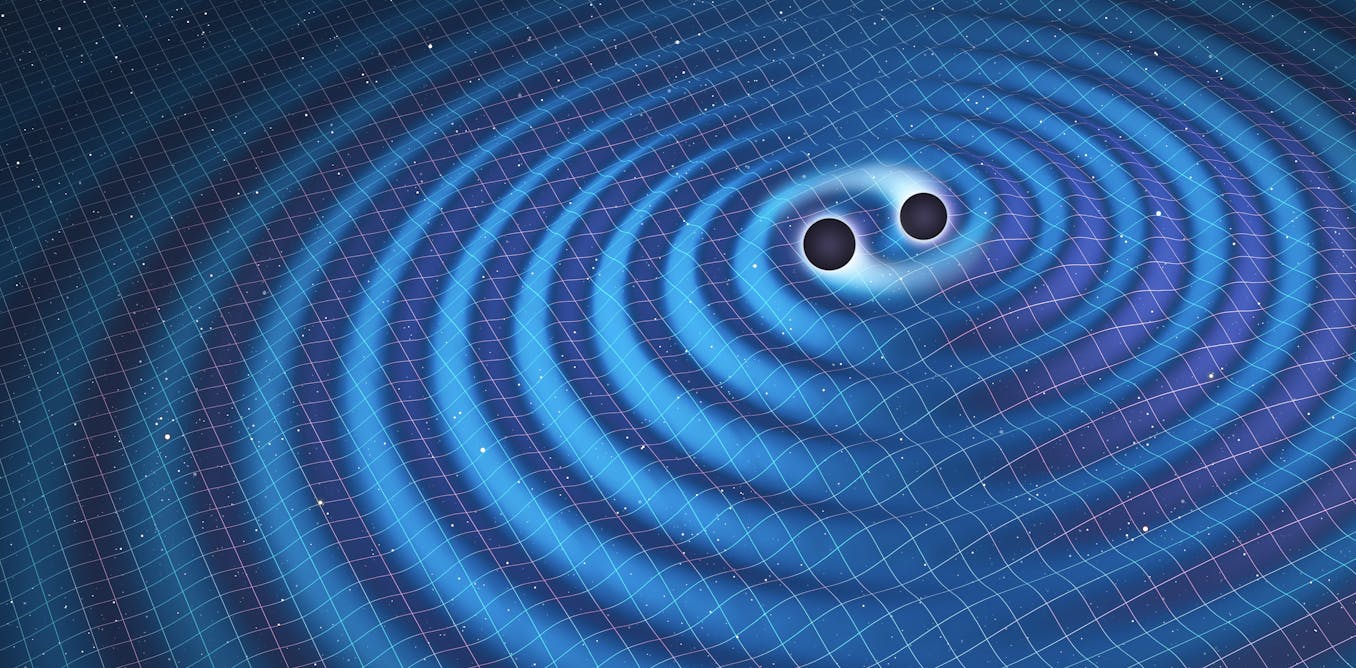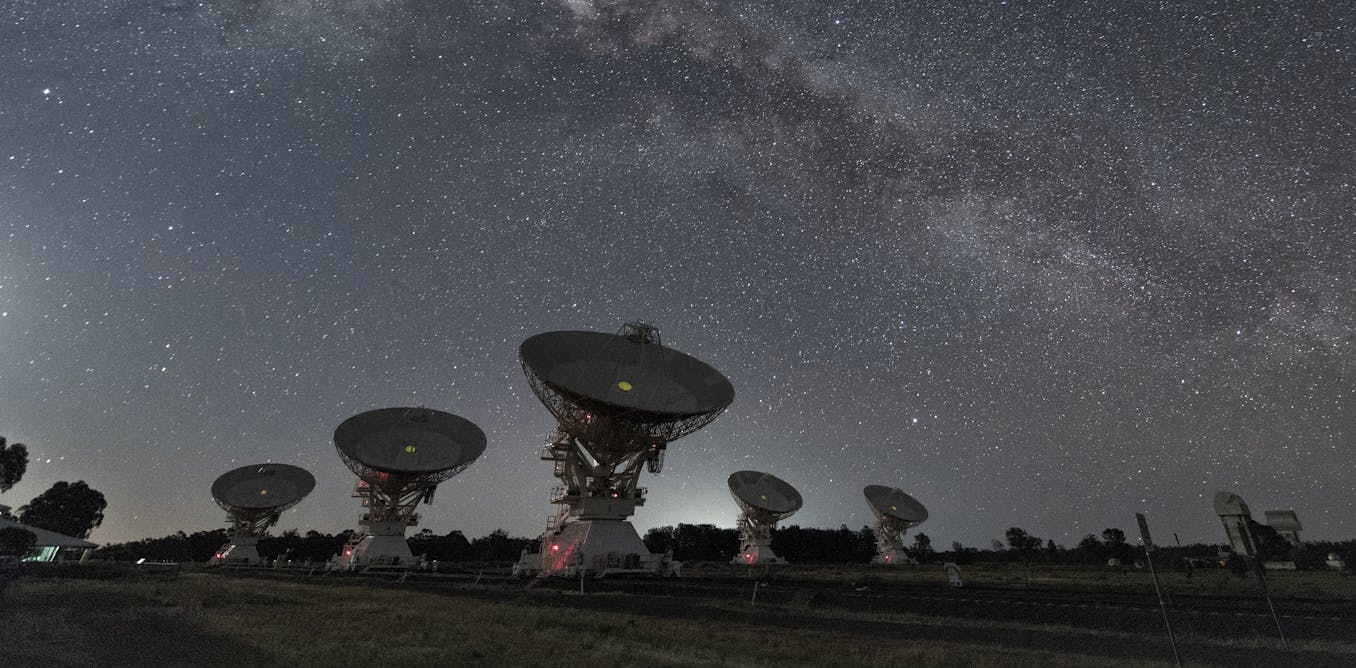Why are some black holes bigger than others? An astronomer explains how these celestial vacuums grow
Pictures of black holes have a white outline around them when photographed, due to one of black holes’ unique and key features.
Dec. 18, 2023 • ~6 min
Powerful black holes might grow up in bustling galactic neighborhoods
An astronomer and ‘black hole historian’ explains how the parts of the universe black holes grow in might influence how quickly they become bright, supermassive objects.
Sept. 11, 2023 • ~8 min
A subtle symphony of ripples in spacetime – astronomers use dead stars to measure gravitational waves produced by ancient black holes
Astronomers have for the first time detected the background hum of gravitational waves likely caused by merging black holes.
June 30, 2023 • ~9 min
IceCube neutrino detector in Antarctica spots first high-energy neutrinos emitted in our own Milky Way galaxy
New data from the IceCube collaboration shows neutrino emissions from within our Milky Way galaxy – but figuring out where exactly these ghost particles come from is harder than it seems.
June 29, 2023 • ~7 min
Brightest cosmic explosion of all time: how we may have solved the mystery of its puzzling persistence
Radiation from the brightest cosmic explosion ever seen may have been mixing with gas and dust around its dying star – making the signal last longer.
June 7, 2023 • ~6 min
Gravitational wave detector LIGO is back online after 3 years of upgrades – how the world's most sensitive yardstick reveals secrets of the universe
Upgrades to the hardware and software of the advanced observatory should allow astrophysicists to detect much fainter gravitational waves than before.
May 22, 2023 • ~10 min
AI is helping astronomers make new discoveries and learn about the universe faster than ever before
Artificial intelligence tools are making waves in almost every aspect of life, and astronomy is no different. An astronomer explains the history and future of AI in understanding the universe.
May 3, 2023 • ~8 min
Radio interference from satellites is threatening astronomy – a proposed zone for testing new technologies could head off the problem
Many telescopes use the radio spectrum to learn about the cosmos. Just as human development leads to more light pollution, increasing numbers of satellites are leading to more radio interference.
March 3, 2023 • ~11 min
/
3

